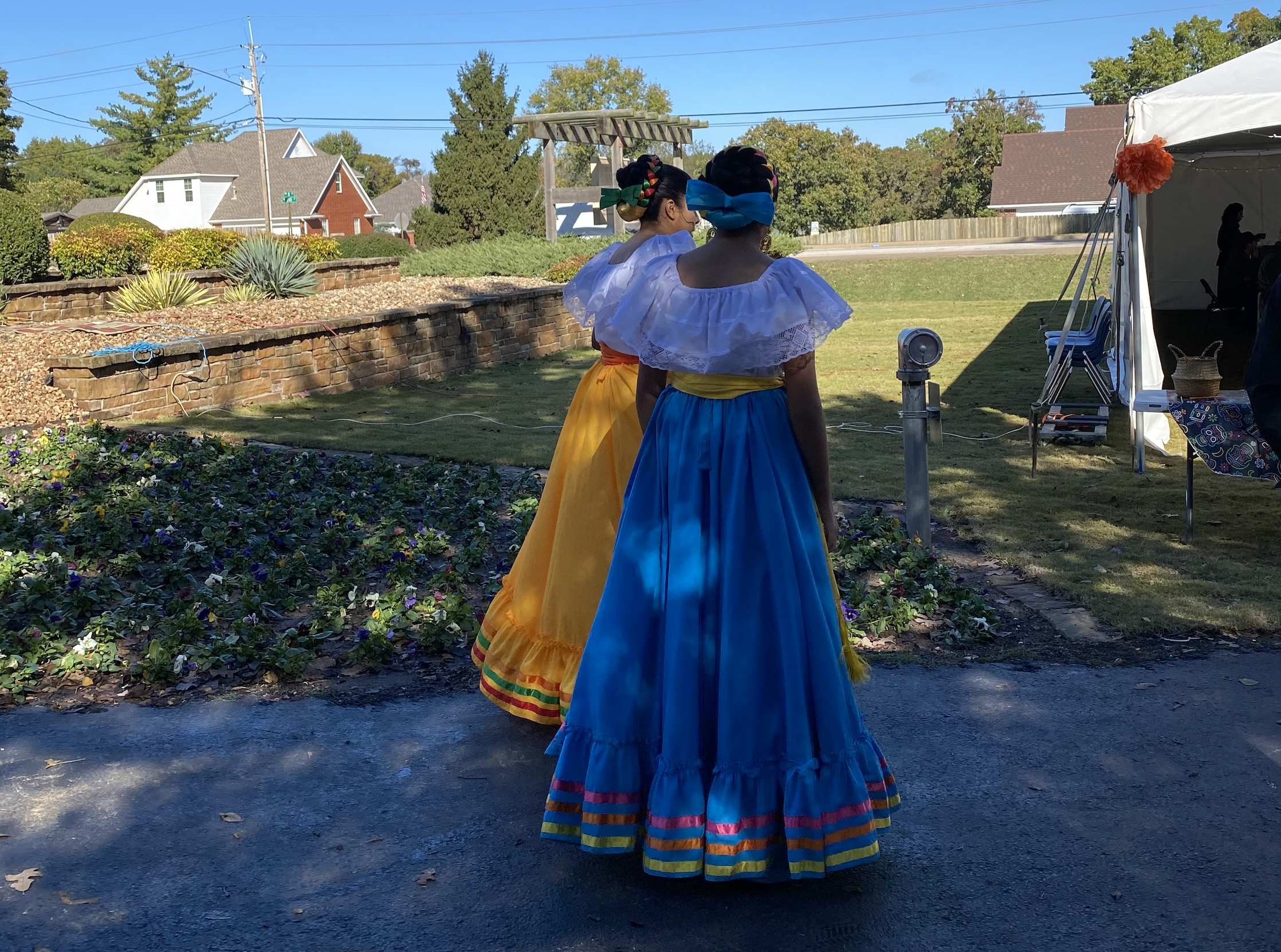By Raegan Holland
Fayetteville, Ark. (UATV) — Many members of Mexican and Latin American communities wrap up their celebrations for Día de los Muertos, a traditional holiday lasting from Oct. 30 to Nov. 2.
Since 1990, the Hispanic and Latino population in Northwest Arkansas has increased from 3,117 to 104,042, according to the Northwest Arkansas Council. In Fayetteville, the community is projected to increase from 6,452 in 2017 to 8,541 in 2022.
A four-day celebration commemorating the community’s deceased loved ones, Día de los Muertos remembers the lives of those who have passed rather than their death. While the celebration takes different forms throughout Mexico, Central and South America, it centers around bringing families together.
Several Día de los Muertos traditions include ofrendas, or altars, composed of photographs, personalized mementos, flowers and candles. These ofrendas are used as a way for families to guide their past loved ones home during the celebration.
“Some people put salt and water to quench the thirst of people who have gone through these long journeys to be able to go home,” says Ramon Balderas, assistant director for student support services. “You’ll see a lot of candles, usually you’ll put out a candle for each member that is coming and that becomes kind of their homing device.”
While its celebration date may coincide with Halloween, Día de los Muertos is not a Mexican Halloween — although it is often mistaken as one. Baldaras says there are some similarities between the two holidays, but also major differences in what they each celebrate.
“I think my favorite part is the fact that it (Día de los Muertos) still becomes very much about family,” says Baldares. “Being able to be close and that you know even death doesn’t play a big part in how we’re always going to be connected and how we’re always going to be a part of family.”
Lourdes Valverde, a member of Raices de Mexico, says while the holiday centers around family, the way in which it is celebrated varies from region to region.
“Mexico City is most like a party, the festivities in the street,” says Valverde. “But in the South, it is most mystic, it’s most like a religious event.”
Día de los Muertos was originally adopted by Spanish conquistadors, which incorporated various Cathlic beliefs into the holiday. The festival has since become very moldable, as it is easily influenced by its environment, says Baldares.
With the Hispanic and Latino population on the rise in Northwest Arkansas, some members of the community are collaborating with local establishments to spread their culture.
In Bentonville and Bella Vista, the Hispanic and Latino community is projected to increase from 5,308 in 2017 to 6,629 in 2022, according to the Northwest Arkansas Council.
This year, Valverde partnered with Bentonville’s Museum of Native American History to celebrate Día de los Muertos through an in-person event. In addition to offering attendees various folkloric dances, traditional baked goods and jewelry, the MONAH festival remembered front-line workers.
“We’re honoring doctors and nurses and front-line workers that passed away with COVID,” says MONAH Director Charlotte Buchanan. “And right now Lourdes is making a gorgeous altar that their names will be running consistently throughout the weekend.”
Baldares says he finds it important to celebrate Día de los Muertos throughout his life now, so that when he passes, he will know his life will continue to be remembered.
“I think it’s such a cool concept, because it holds on to that belief that there is life after death,” says Baldares. “I think that it is meant to be able to help people, also keep some kind of peace that death is not the end right and to also always kind of see it as a celebration of life.”


